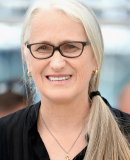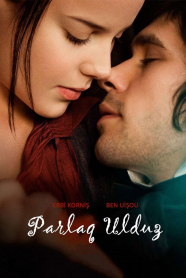
Jane Campion
Jane Campion
Director, screenwriter, producer, actress, cinematographer, editor
Dame Elizabeth Jane Campion (born 30 April 1954) is a New Zealand screenwriter, producer, and director. Campion is the second of five women ever nominated for the Academy Award for Best Director and is the first—and thus far, only—female filmmaker in history to receive the Palme d'Or, which she received for directing the acclaimed film The Piano (1993), for which she also won the Academy Award for Best Original Screenplay. Campion was born in Wellington, New Zealand, the second daughter of Edith (née Beverley Georgette Hannah), an actress, writer, and heiress, and Richard M. Campion, a theatre and opera director. Her maternal great-grandfather was Robert Hannah, the shoe manufacturer of Antrim House. Her father was from a family of Exclusive Brethren. With her older sister, Anna, born a year and half before her, and brother, Michael, born seven years after, Campion grew up in the world of New Zealand theatre. Her parents founded the New Zealand Players theatre group. While initially rejecting the idea of a career in theatre or acting, she graduated with a Bachelor of Arts in Anthropology from Victoria University of Wellington in 1975. In 1976 Campion attended Chelsea Art School in London and travelled throughout Europe. She graduated with a Graduate Diploma in Visual Arts (Painting) from the Sydney College of the Arts at the University of Sydney in 1981. Based on her education at art school, Campion cites surrealist painter Frida Kahlo and sculptor Joseph Beuys as influences on her art. Dissatisfied with the limits of painting as a medium, Campion turned to film and created her first short film, Tissues in 1980. In 1981 she began studying at the Australian Film, Television and Radio School, where she made several more short films, and graduated in 1984. Her first short film, Peel (1982), won the Short Film Palme d'Or at the 1986 Cannes Film Festival, and other awards followed for the shorts Passionless Moments (1983), A Girl's Own Story (1984) and After Hours (1984). Having left the Australian Film and Television School she directed an episode for ABC's light entertainment series Dancing Daze (1986), which led to her first TV film, Two Friends (1986) produced by Jan Chapman. Sweetie (1989) was her feature debut, and won international awards. Further recognition followed with An Angel at My Table (1990), a biographical and psychological portrayal of the New Zealand writer Janet Frame. International recognition followed with another Palme d'Or at the 1993 Cannes Film Festival for The Piano, which won the best director award from the Australian Film Institute and an Academy Award for Best Original Screenplay in 1994. At the 66th Academy Awards, she was the second woman ever to be nominated for Best Director. Campion's work since that time has tended to polarize opinion. The Portrait of a Lady (1996), based on the Henry James novel, featured Nicole Kidman, John Malkovich, Barbara Hershey and Martin Donovan. Holy Smoke! (1999) teamed Campion again with Harvey Keitel, this time with Kate Winslet as the female lead. In the Cut (2003), an erotic thriller based on Susanna Moore's bestseller, provided Meg Ryan an opportunity to depart from her more familiar onscreen persona. Her 2009 film Bright Star, a biographical drama about poet John Keats (played by Ben Whishaw) and his lover Fanny Brawne (Abbie Cornish), was shown at the Cannes Film Festival.
For more information press link below:
